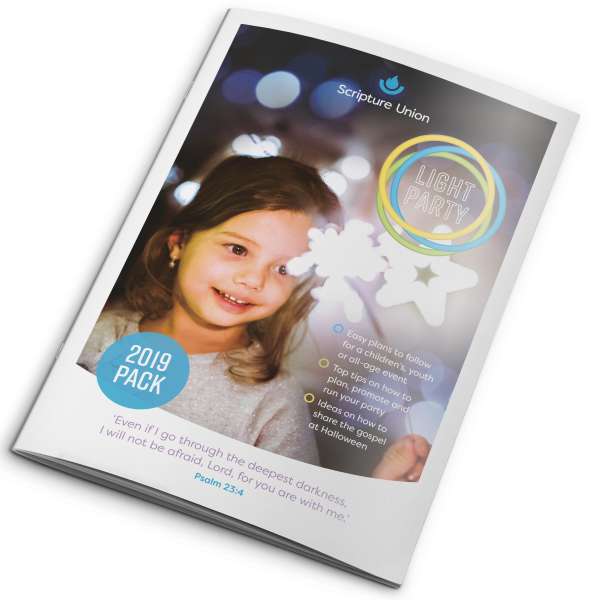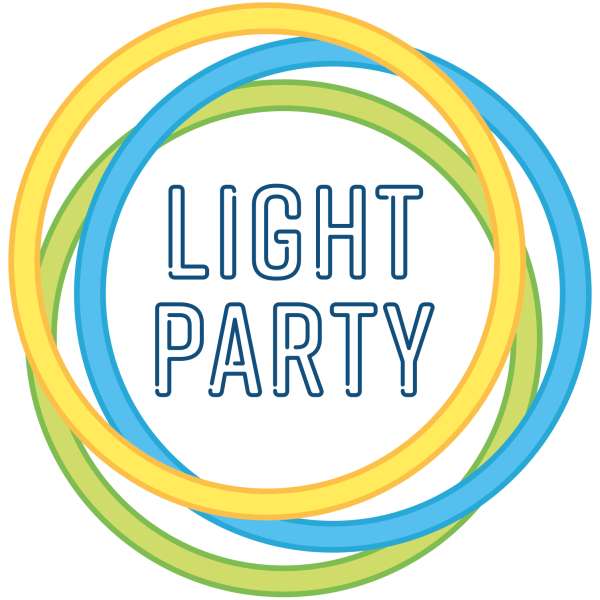Halloween has become increasingly popular. In some ways it is replacing the 5th of November as the autumn event to celebrate. Much of the popularity is due to the influence of American TV and it being a more popular holiday in USA where children party, dress up and go ‘Trick or Treating’. It can be a difficult time for Christians to know where to stand, and children’s workers may not know how to approach this time of year. Our Light Party Pack has lots of ideas for games and activities for holding the perfect alternative Halloween party for the children and young people in your community.
Where did Halloween come from?
The origins of Halloween lie buried deep in the mists of time and probably draw on a number of sources. The Celtic feast of Samhain (pronounced, for some strange reason, sow-in) celebrated the end of harvest and the beginning of the dark period of winter. The boundary between this world and the world of the dead was thought to dissolve and the dead returned to earth and created havoc by playing tricks on people and damaging crops. Some suggest that this gave plenty of opportunity for the local practical jokers to do their worst and blame it on the spirits; others that some people used to dress up in order to deceive the spirits. For the Celts there would have been feasting around bonfires designed to ward off the spirits. This was a good time for telling fortunes as the spirits were more easily reached. However, our sources for this period are very limited so much of this is conjecture.
The Romans added two feasts of their own, Feralia, which commemorated the dead, and a feast in celebration of Pomana the goddess of fruit and trees – hence perhaps the link with apples, which were her symbol.
Enter the Christian church who introduced the Feast of All Saints on November 1 in an attempt to move interest away from the emphasis on pagan festivals and the celebration of the dead. This is where the term Halloween originates since the 1st of November was originally the Feast of All Hallows and the 31st of October All Hallows Eve, later contracted to Halloween.
Should I be concerned that Halloween means children are getting involved with occult practices?
As mentioned above much of Halloween’s history is Christian. From a Christian perspective, Halloween is the first chapter in the story that ends with All Saints’ Day.
Children will do what they always do when working out the big issues of life: play. At Halloween, we unpack all the standard bogeymen of childhood fairy tales – witches, ghosts, skeletons and vampires – and confront them. We can acknowledge that, yes, evil exists and the world is scary and dangerous, and, yes, someday we will all die. And then, on All Saints’ Day, we hear the second half of the story – that death is not the end, that on the other side of fear is victory and that we do not become ghosts or skeletons when we die but spend eternity with Jesus, with new life stronger than death.
My child wants to celebrate Halloween with their non-Christian friends. What should I do?
You can always speak to the parent or teacher organising the event and ask what it will include. If you’re concerned that trick-or-treating will become rowdy or frightening for older people at home, offer to chaperone the group while they go house to house. Going around the neighbourhood asking for treats is traditional in British folk culture – carol singing at Christmas, pace-egging at Easter, trick-or-treating on All Hallow’s Eve. It’s nothing to be afraid of as long as children know what the limits are – no practical jokes, and to say ‘thank you’ when they’ve received their treat.
How can I show God’s love this Halloween?
- Organise a Light Party! Light Parties are a great way to share the light of Jesus with you community this Halloween.
- Pray about Halloween and for those who get involved that they might find something of the light of Jesus.
- Why not carve a pumpkin with a cross in it, or perhaps a heart or some other Christian message? You can sit this on your doorstep to share your message of hope this Halloween.
- If you are happy and your children really want to go out or to a party in costume, create a costume that speaks about life and hope
- Think about what positive gifts you could give to any ‘trick or treat’ visitors. Scripture Union has produced two 20-page evangelistic booklets ideal for introducing Jesus as Light of the World at Halloween. What do you do when darkness comes to visit? is aimed at children aged 8-11 and Who is the Light? is for 5-8 year olds.
Details
- Halloween
- Light party
- Discipleship,
- Outreach
- Church & Community


